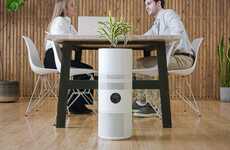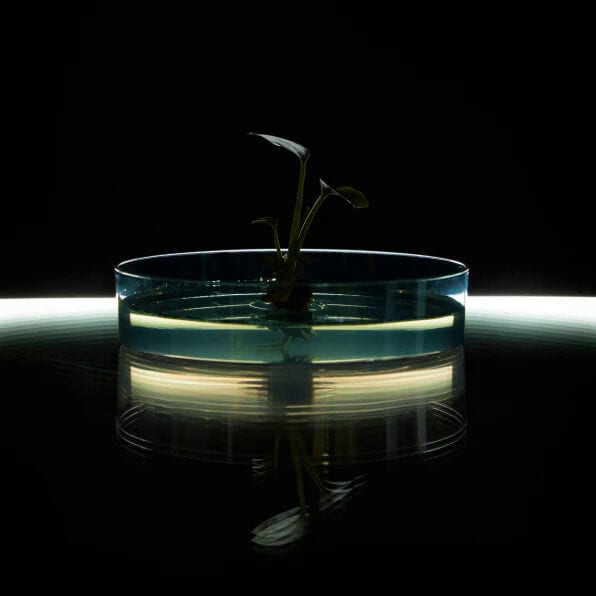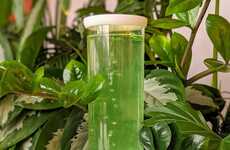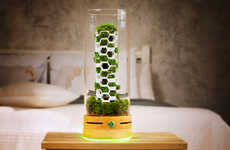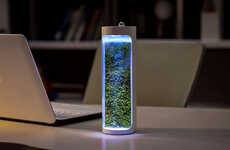
'Neoplants' Makes Engineered Houseplants that Clean Airborne VOCs
Colin Smith — October 28, 2022 — Eco
References: neoplants & fastcompany
'Neoplants' is a Paris-based startup focusing on improving houseplants' abilities to capture pollution and volatile organic compounds (VOCs) from the air. The startup chose plants that have a large capture capacity and opted to look into ways for these plants, which already capture VOCs such as formaldehyde and benzene, to turn these compounds into a usable byproduct.
Neoplants edited the genome of the 'Pothos' plant to make it capable of transforming formaldehyde from the air into sucrose, and to transform benzene and other compounds into proteins. The plant then consumes these proteins and sugars, feeding itself and causing itself to grow larger. This process also frees up the cells in the plant's leaves, allowing it to capture more VOCs from the air, continuing the process. On a large scale, the Neoplants Pothos could have a considerable impact on air purifying.
Image Credit: Neoplants
Neoplants edited the genome of the 'Pothos' plant to make it capable of transforming formaldehyde from the air into sucrose, and to transform benzene and other compounds into proteins. The plant then consumes these proteins and sugars, feeding itself and causing itself to grow larger. This process also frees up the cells in the plant's leaves, allowing it to capture more VOCs from the air, continuing the process. On a large scale, the Neoplants Pothos could have a considerable impact on air purifying.
Image Credit: Neoplants
Trend Themes
1. Engineered Houseplants - The development of genetically-engineered houseplants creates new opportunities for air purification and could lead to disruptive advancements in the plant industry.
2. Volatile Organic Compounds (vocs) Reduction - The reduction of VOCs using plant biotechnology presents disruptive innovation opportunities in industries such as construction, automotive, and manufacturing.
3. Sustainable Plant-based Solutions - The introduction of sustainable plant-based solutions for air purification could lead to innovative products for environmentally-conscious consumers and businesses.
Industry Implications
1. Agriculture - The agriculture industry can utilize plant biotechnology to enhance crop yield and lower the use of chemical pesticides and fertilizers.
2. Architecture and Design - The architecture and design industry can incorporate engineered houseplants to improve indoor air quality and enhance the sustainability of buildings.
3. Environmental Services - The environmental services industry can offer new services and products for VOCs reduction and air purification using genetically-engineered plants.
6.9
Score
Popularity
Activity
Freshness




